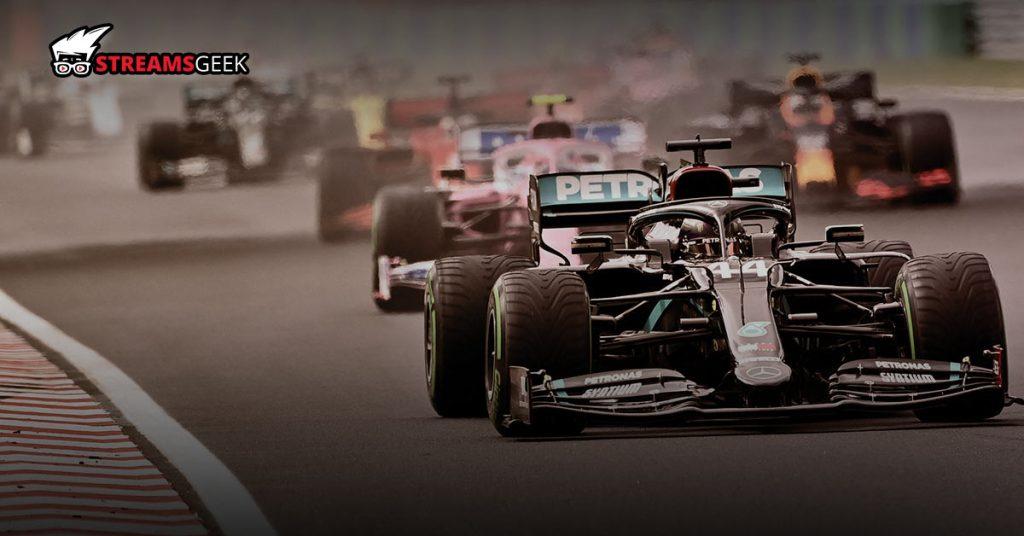Formula 1 President Stefano Domenicali has been discussing possible future races in London and Africa, citing the importance of expanding the sport’s reach and connecting with new audiences around the world. In this article, we’ll explore Domenicali’s comments and what they could mean for the future of Formula 1.
Expanding Formula 1’s Global Reach
Formula 1 is a global sport with races held in countries all around the world. However, there are still many regions where the sport has yet to make an appearance. Domenicali has made it clear that he sees expanding Formula 1’s global reach as a key priority for the sport, and he believes that holding races in new locations is a crucial part of achieving this goal.
In recent comments to the media, Domenicali discussed the possibility of holding a race in London, saying that it would be “fantastic” for the sport. He noted that London is a global city with a rich motorsport history, and that hosting a race there would allow Formula 1 to tap into a passionate and knowledgeable fanbase. However, he also acknowledged that there are logistical challenges to overcome, such as finding a suitable location for a street circuit and securing the necessary permissions and infrastructure.
Africa is another region that Domenicali has identified as a potential growth area for Formula 1. He has spoken about the possibility of holding a race on the continent, highlighting its rich cultural heritage and passionate fans. He noted that Africa is home to some of the world’s fastest-growing economies, and that there is significant potential for Formula 1 to tap into this market.
The Challenges of Expanding Formula 1’s Reach
While expanding Formula 1’s reach is an important goal, it’s not without its challenges. One of the main obstacles is the cost of hosting a race. Building a new circuit or converting an existing one to meet Formula 1’s rigorous standards can be a significant financial undertaking, and this is a major consideration for potential host cities.
In addition, there are logistical challenges to consider. Formula 1 races require significant infrastructure, including safety barriers, medical facilities, and media centers. Host cities must also be able to accommodate the thousands of fans who attend each race, providing adequate transportation and accommodation options.
Finally, there are political considerations to take into account. In some regions, there may be political instability or security concerns that make it difficult or impossible to hold a race. Host cities must also be able to navigate the complex web of regulations and bureaucracy involved in hosting a major sporting event.
The Challenges of Hosting Races in London and Africa
While the prospect of hosting races in London and Africa is exciting, there are also many challenges to consider. For example, both locations would require significant infrastructure upgrades to accommodate a Formula 1 race. In London, there are concerns about traffic and air pollution, while in Africa, there may be issues related to security and political stability. Domenicali acknowledged these challenges in his interview, but emphasized that Formula 1 is committed to finding solutions and working with local authorities to address any issues.
The Potential Benefits of Racing in London and Africa
Despite the challenges, there are many potential benefits to hosting races in London and Africa. In London, a Formula 1 race could bring significant economic benefits to the city, with increased tourism and job creation. In Africa, a race could help promote the continent as a destination for international events and boost local economies. Additionally, hosting races in London and Africa would expand Formula 1’s global reach and help the sport appeal to new audiences.
Formula 1’s Commitment to Diversity and Inclusion
In recent years, Formula 1 has made a concerted effort to promote diversity and inclusion in the sport. Domenicali discussed these efforts in his interview, emphasizing that Formula 1 is committed to creating a more inclusive and accessible sport. This includes initiatives such as the “We Race As One” program, which focuses on tackling issues related to sustainability, diversity, and inclusion, and the creation of the Formula 1 Diversity and Inclusion Task Force, which is working to increase diversity in all areas of the sport.
The Future of Formula 1
As Formula 1 looks to expand its global reach and promote diversity and inclusion in the sport, there is much to look forward to in the future. In addition to potential races in London and Africa, Formula 1 is also exploring new technologies such as electric racing and driverless cars. With a new leadership team in place and a renewed focus on innovation and sustainability, the future of Formula 1 looks bright.
Read More: Springfield Cardinals: The Pride of Missouri
Looking to the Future
Despite these challenges, Domenicali remains optimistic about the future of Formula 1. He has made it clear that he sees expanding the sport’s global reach as a key priority, and that he is willing to explore new and innovative ways to achieve this goal. Whether it’s by holding races in new locations, exploring new broadcast platforms, or engaging with fans on social media, Domenicali is committed to finding new ways to grow the sport and connect with fans around the world.
Conclusion
In conclusion, the possible future races in London and Africa, as discussed by Formula 1 President Stefano Domenicali, represent an exciting opportunity for the sport to expand its global reach and connect with new audiences. While there are certainly challenges to overcome, Domenicali’s commitment to growth and innovation bodes well for the future of Formula 1.



